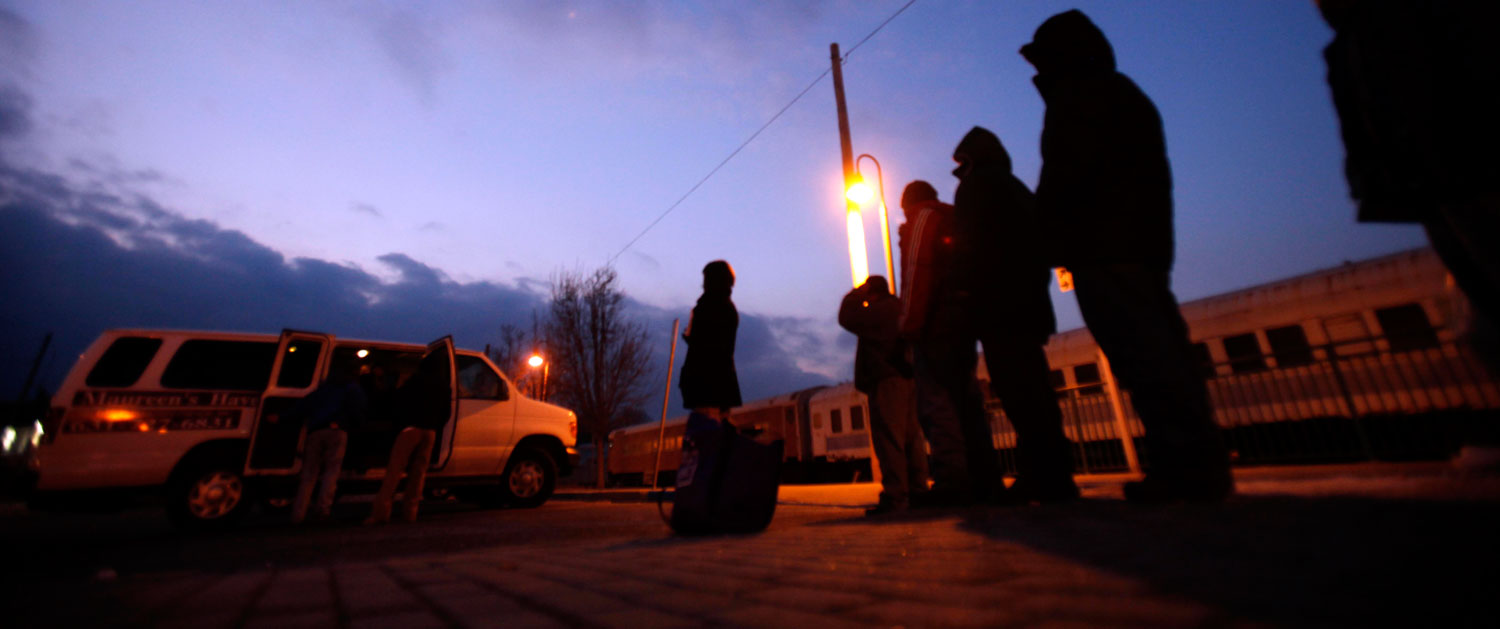
Darryl (not his real name) sleeps on the street and struggles with multiple physical and mental health challenges. In the past month, he has had about 10 interactions with the police, sometimes multiple times a day. One weekend, Darryl was arrested and spent about 24 hours in jail. The next morning, he was released—and had another run in with a police officer that afternoon. Over the last month, these police contacts and arrest cost his city hundreds of dollars.
People like Darryl who experience chronic homelessness often cycle in and out of jail, which not only affects their well-being, but also comes at an enormous cost to taxpayers. Most of these individuals have other challenges, like persistent mental illness and substance abuse. Along with ongoing criminal justice involvement, these challenges have contributed to their disconnection from community services, despite multiple and complex needs.
Many are cited for public-nuisance offenses, such as panhandling, trespassing, and public intoxication. While many of these offenses wouldn’t automatically result in a jail stay, individuals are given a ticket and a court date. When various challenges prevent them from showing up to court, a warrant is issued for their arrest, resulting in a jail stay the next time police make contact. After serving their sentence, often a short jail stay, these individuals are back on the street in the same cycle of homelessness and arrests.
In February, Denver mayor Michael B. Hancock announced the country’s eighth social impact bond (SIB), an $8.6 million investment to provide supportive housing to a homeless population that also represents some of the city’s most frequent users, like Darryl, of police services and jails.
The goal is to stabilize homeless individuals with housing and intensive services, leading to a decrease in jail stays, which saves the city money. The first step toward success is identifying Denver’s most at-risk residents so that supportive housing is provided to those who need it the most.
The initiative targets individuals who have had at least eight arrests in the last three years and have been determined to be transient, meaning they are without an address or provide the address of a shelter. In a given year, Denver Crime Prevention and Control Commission has calculated that a cohort of 250 individuals in this target population spent an average of 56 nights in jail each year and interacted with other systems such as detox and emergency care, costing the city $7.3 million per year on average.
The program is in the beginning stages, but it appears to be reaching the right people. As part of our evaluation of the initiative, we identified about 1,400 individuals who meet the SIB’s targeting criteria. In just the last three months, our project-monitoring data show nearly one-third have had at least one new police contact or arrest. Like Darryl, these individuals have clearly demonstrated the frequent user cycle, averaging five police contacts in the last three months, while some had up to 41 police contacts in the three-month period.
Over the next five years, the SIB will enroll and serve 250 individuals like Darryl who have spent years caught between homelessness and the criminal justice system, a pattern that has been a barrier to the services needed to break the cycle.
While the SIB’s evaluation will eventually help us understand the impact of supportive housing on this population’s frequent use of jails and other costly services, the data we have suggest that the project is taking the important first step of reaching those who stand to benefit the most.
Tune in and subscribe today.
The Urban Institute podcast, Evidence in Action, inspires changemakers to lead with evidence and act with equity. Cohosted by Urban President Sarah Rosen Wartell and Executive Vice President Kimberlyn Leary, every episode features in-depth discussions with experts and leaders on topics ranging from how to advance equity, to designing innovative solutions that achieve community impact, to what it means to practice evidence-based leadership.